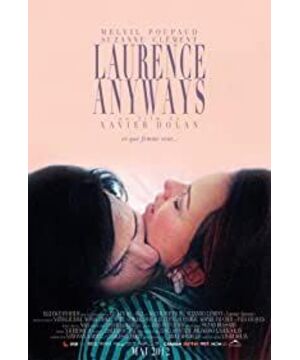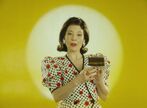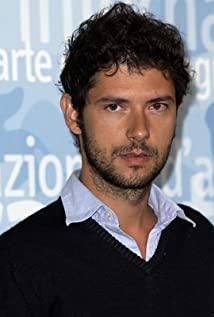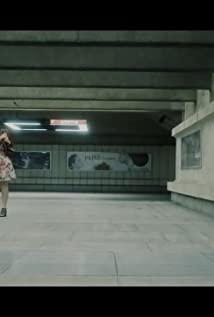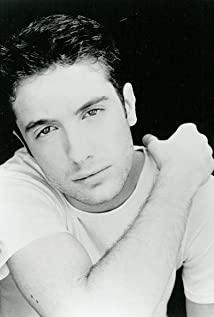French-speaking Canadian director Xavier Doran was staggeringly young (23 years old) when he made "Lawrence of Two Sides". The bright and colorful tones and exaggerated costumes in the film are also amazing, like being in a masquerade party. Half of the time walking the runway to psychedelic music, but the other half is always arguing. A normal love story between a normal woman and a transgender - I think transvestite is more appropriate. The actor retains his inherent tough style. Although he wears enchanting clothes, his movements are not pretentious, and his spirit is strong and determined. Maybe we have to correct the stereotype of transgender people: orchid fingers, holding a handkerchief to cover their face; People are far more lenient towards a trans person who is fully feminine. With two criteria, two labels, it is not difficult to classify a person. The middle state, the state of being neither male nor female, is what makes people feel offended.
In the Canadian visa form, there are three options for gender: Male, Female, Unknown (this kind of tolerant attitude at the government level, I don't know when my country will be able to achieve it). When we see the word Unknown, we shouldn't just express surprise and ridicule. The identity of a gender victim has been righted and squared up, just as shown in the film. I don’t know how many hardships have been experienced, whether it is personal experience or that of relatives and friends.
Lawrence is a transgender, author and teacher. At the beginning of the film, he is in class, and after telling the history of pro-German writers who were tried after World War II, he threw this question: "Is there a literature so great that it exempts the excluded and exiled? He was victimized because he was out of tune with the world around him? And this victim, in another time and space, could be you or me?" Soon after, the victim appeared - he was looked at by passers-by, expelled from school, and disliked by his mother, After being approached, he got into a fight, and was entangled by the waiter in the restaurant. Only his girlfriend was still by his side. Strangely, the attitude in the school was much more forgiving. Lawrence changed clothes on his first day, and his restraint was evident when he came to class. The students were shocked and fell silent for a while. Finally, a girl spoke up, but instead of asking "Why are you dressed like this", she asked him to talk about the text again. The students did not point fingers at his clothes, and this mature attitude is exactly what the director expects to see - no evaluation, no discussion, so that those who have bravely transformed into the new self are no longer afraid. live. Lawrence's bespectacled colleague asked him, "Is this a revolt?" "No, it's a revolution." They both burst out laughing.
The emotional experience between Lawrence and Xiao Buddha is quite normal, but it is beautiful and powerful. At the end of the film, Lawrence insists that the reporter who is interviewing look at him. After the reporter looked at him squarely, he said, "You are so beautiful." When a transgender person (or a transvestite) has been able to affirm his "abnormal" hobbies, whether our society is progressing enough to face him squarely, he said from the bottom of his heart Say: "You are so beautiful"?
Let's take a look at a few small details I like in the film:
1. The Mona Lisa portrait on the head of Lawrence's bed. The Mona Lisa set is rumored to have male and female features, as well as possibly a female version of Leonardo's self-portrait. It turns out that this painting also has a deep meaning: neutral people can also be beautiful.
2. When the school leaders announced their expulsion, Lawrence wrote on the blackboard: "ecce homo". The subtitle translates as "Jesus in the Crown of Thorns", which is inaccurate. ecce homo is Latin, meaning "Look at this man!" From the Bible, the words of the executive officer to the public before Jesus was executed wearing the crown of thorns. (Nietzsche also wrote the book "Look! This Man" in the same words). I feel that Lawrence used this sentence to show that he was persecuted by the public, and also expressed deep self-deprecation.
3. The next scene after Lawrence loses her job is when Ferb discusses her new movie with a man in yellow. The cryptic words of the man in yellow seemed to indicate: "If you want to make this movie, you must accept my unspoken rules." As a result, Xiao Buddha also felt the malice from this world: not only transgender people were discriminated against, like Women who are serious working women like her are also not respected.
4. Before the film ends, Lawrence sees through the window on the street, his former colleague with glasses is tidying the collar of another man. He smiled knowingly: Maybe it was my bold move that touched those who were moved but dared not act, and made him admit his sexual orientation. Homosexuals don't have to stand in the dark corner, and they can finally Stand on the street.
View more about Laurence Anyways reviews


